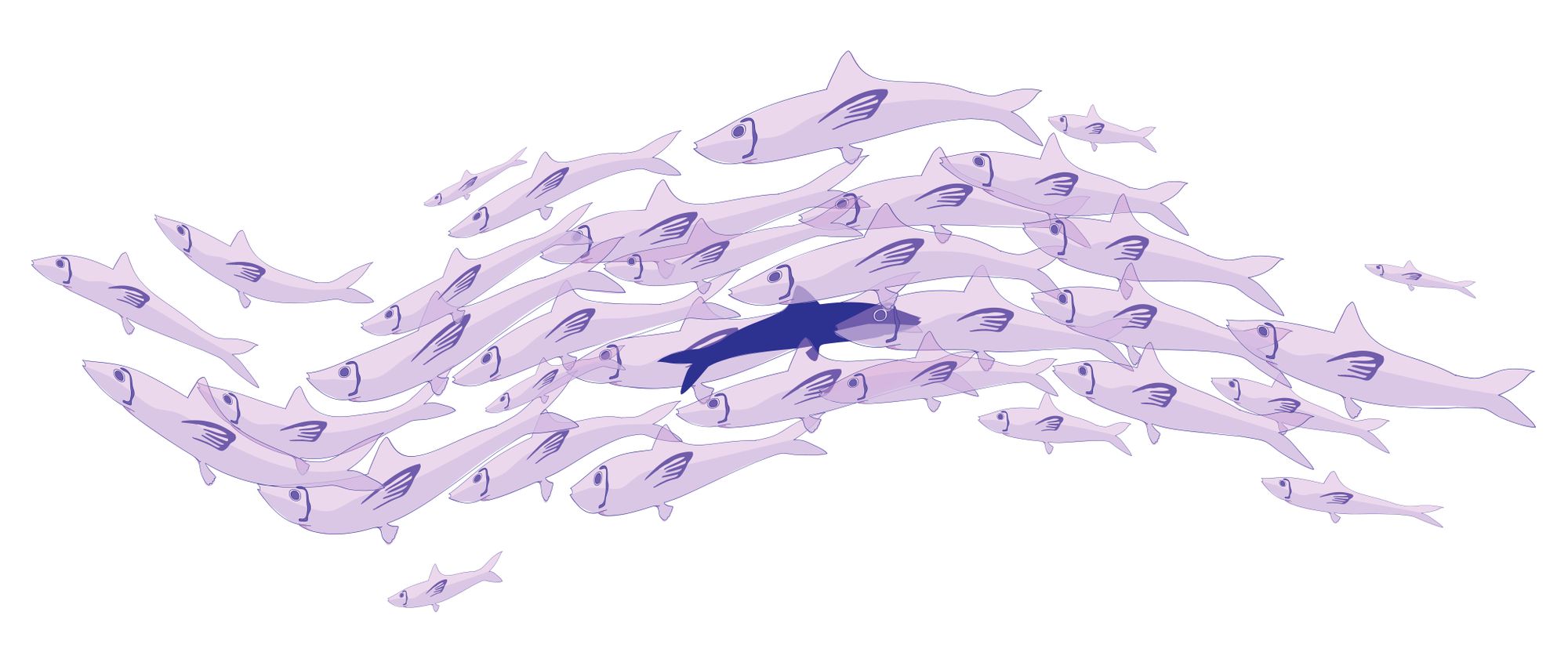On contrast
con·trast, noun, /ˈkänˌtrast/
the state of being strikingly different from something else in juxtaposition or close association.

Adult life sucks us in, for better or worse. We start careers, families, homes—then time shrinks. Where you saw friends & relatives twice a week, you now see them once a month.
Add a damn pandemic and that absence period triples. Throw in the tail end notion, and you’re left with a scarily limited amount of moments with your loved ones.
Contrast helped me leverage this as best as I could. When you see people on the regular, you take their presence for granted. You skip listening in on the details. You don’t make conscious efforts to help or discuss more meaningful things.
In peak Covid times, I see my mother once a week, and close friends maybe once a month. We go on distanced walks outside. But now, I try to delight in the trivial and pursue the profound.
Tell me everything about that new video game you spent the night playing. Tell me why we stopped believing in God. Was it cynicism or rationality?
Tell me more about that knitting technique you’re trying out. Tell me how it felt when you first went on the Internet. What was the hardest thing about raising two kids without a spouse?
Similar feelings haunt my relationship. Three months ago, I moved into a brand new apartment with my girlfriend.
Here, the contrast came from a ten-fold increase in physical presence and psychological proximity. I was used to living alone—I ate, cleaned, and slept whenever I wanted (not anymore!). At night, I often felt lonely in my small apartment.
Before this new chapter, I spent hundreds of mundane moments by myself. Games, shows, movies, podcasts, walks, snacks, naps. Now, these same moments with my +1 magnify my appreciation for life’s simple things.
I rarely—if ever—feel lonely anymore. Sometimes, we’ll be watching Netflix, and I’ll glance at her for a second, zoning out:
“Man, she’s still here. With me. Time passes, and we’re still together. Ain’t that freaking amazing.”
Romance aside, contrast also feels like a powerful business tool to me.
Management
At work, I have been playing the role of CEO for one year.
Before my management days, I kept my head down in operations, taking occasional glances at the bigger picture. This only works when you’re a tiny team—I was the sole marketer. Now that I spend more time thinking long term, I appreciate how crucial stepping back versus diving in is.
Doing both grants you the contrast needed to steer your ship straight. A great captain should master both helm and oars.
When you’re head down, shipping shipping shipping, the ground can shift under your feet without you even realizing it. Operations are steps; strategy is direction. None can exist without the other. Knowing both, as well as you can, fast-tracks your way to success.
How can you make sure the contrast between operations and strategy is felt?
If you’re a manager, spend min. 10% of your time doing actual work in the trenches. You want to know what the landscape looks like before sending people forward.
Share results and progress with operators as much as possible. If they’re doing great work, make sure they see how that impacts the bigger picture. Share:
- Traffic, conversion, and revenue trends with content & email marketers, paid ads specialists, and SEOs.
- Usability, usage, performance trends, and customer feedback with product/UX people, designers, and developers.
Marketing
I’ve been reading about the Jobs to be Done (JTBD) framework recently.
Long story short, it ditches personas, demographics, macro market research. It frames product development simply: people hire products to do jobs for them. In that sense:
The job, not the customer, is the fundamental unit of analysis. [source]
JTBD focuses on discovering the context, situation, and desired outcomes around a person's decision to hire a product for a job. It touches strongly on one concept I like:
Their world before/after your product.
This contrast-based narrative is such a powerful way to position and market a product. When you’re analyzing competition or interviewing customers, listen carefully. Seeds of data will drop into your ear, from which the before/after world-building exercise can spring.
Say you’re selling battery-powered lawnmowers. You can use that contrast to your advantage in your marketing:
Stop smelling like gasoline, breaking your shoulder, and scaring your neighbours with cuss words. Go electric.
Branding
Do this next time you re-design your website: put all of the competition’s homepage fitted inside a single file. What stands out to you?
Probably nothing. Almost all SaaS landing pages look the same. This is a perfect opportunity to engineer in contrast to your advantage.
A while back, I heard this guy on a podcast. I’m not following the dude on the reg or anything. But his “be the only, not the best” motto really stuck with me. I talk about it a bit in here.
As a business, try finding what is uniquely "you," which cannot be copied. Then capitalize on that contrast for branding. At Snipcart, we’re far from being the only e-commerce solution. Peers DM me a link to a new one every other week. 😂
But we’re the only developer-first e-commerce solution created by a tiny, bootstrapped team of friendly nerds from Québec City. We value laughing, sharing, and neat code, in that order. No one else can be exactly that. We are the only.
We leverage that all the time! We’re proud of being an indie underdog in a sea of heavily funded behemoths.
When I’m hiring, I tell that same story, with add-ons, like how we don’t accept extra hours and champion transparency. I remove mental health taboo from the start: I tell candidates about the time I fell into a severe depression, and how it affected my work.
ALL of the above implies risks. It’s okay! People might think you're too small. Too emotional. Too relaxed. Whatever—let them find what organization they resonate with.
Closing
Contrast is a concept I try to keep top of mind—both in my personal and professional life.
I see it as a spectrum, not a duality—I’m wary of black and white thinking. It’s a famous cognitive distortion. Contrast lets you make room for unique colours. Savour and use them to your advantage.
Real contrast comes from lived and felt experiences. When it emerges naturally in our lives, we should acknowledge and embrace it. The rest of the time, we should search for it here and there. How? By seeking unfamiliar experiences and welcoming the uncomfortable.
No, I won’t give you eye-opening examples. It would turn this post into a self-help piece, which would contrast too much with my personal brand. (kidding!)
🙇♂️
